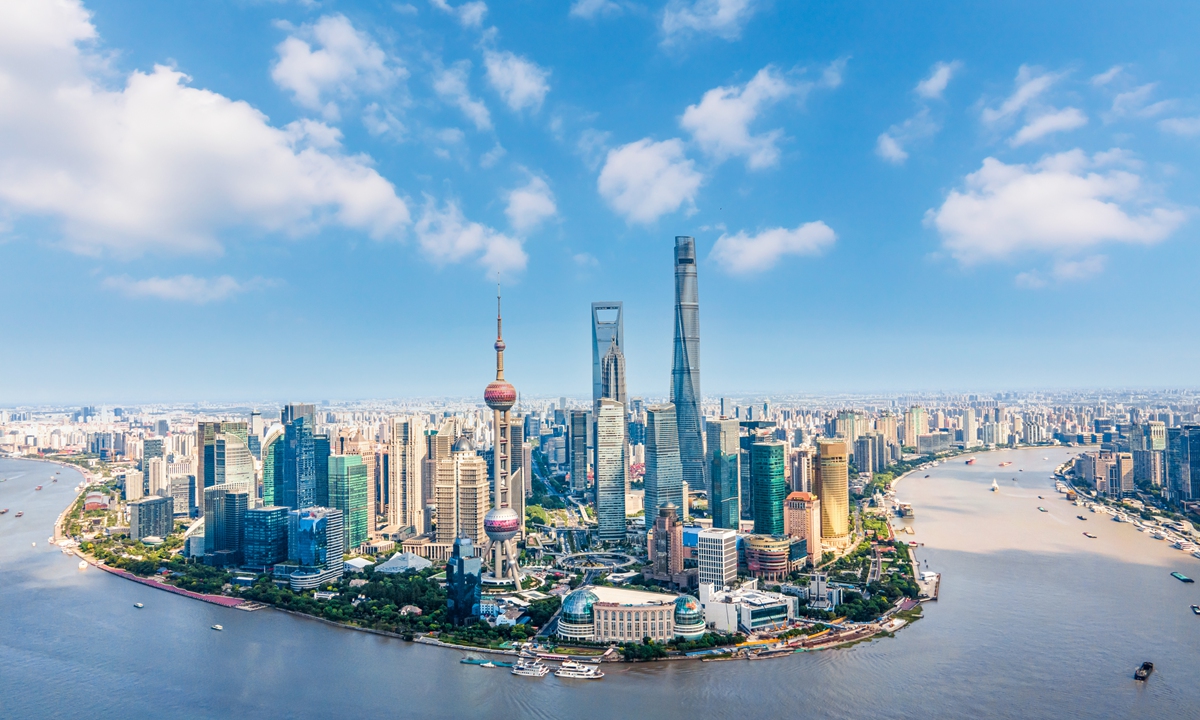
China's Institutional Opening Drives Stability in Global Economic Growth
The Chinese economic landscape is evolving rapidly, influencing both domestic and international markets. As China opens up its institutions, the nation plays a critical role in ensuring the stability and sustainability of global economic growth. This transformation is powered by strategic reforms, embracing globalization, and enhancing foreign cooperation. Below, we’ll explore how these actions translate into tangible impacts on the global economy.
Strategic Reforms Fuel Economic Growth
China's commitment to strategic economic reforms has set a robust foundation for continued growth. By taking significant steps to reform its financial sector, the country is bolstering its capacity to engage with global markets. This process involves liberalizing capital markets, allowing more foreign investment, and creating a more transparent financial environment.
These reforms have attracted international investors eager to take part in China’s economic resurgence. By opening its doors to foreign entities, China encourages competition, promotes innovation, and enhances its economic resilience. Consequently, this revitalization provides a more stable and secure investment climate, which plays a vital role in stabilizing global economies.
Enhanced Transparency and Regulatory Frameworks
To support its strategic reforms, China is establishing improved regulatory frameworks and increasing transparency. This move fosters an investor-friendly environment, crucial for nurturing confidence among global stakeholders. With clear regulations in place, the risks associated with investments in China are significantly reduced.
These frameworks ensure fair competition and guide businesses in adhering to international standards. As China aligns its policies with global trends, other countries benefit from the economic ripples, creating a more integrated global market. Countries that trade with China find themselves supported by these robust systems, providing an additional layer of stability.
Embracing Globalization: A Double-Edged Sword
Embracing globalization has positioned China as both a leader and a key player in the international arena. By engaging deeply with world markets, China not only strengthens its own economic stature but also acts as a catalyst for global growth. This engagement, however, is not without its challenges.
The Benefits of Global Economic Integration
China's integration into the global economy allows for an exchange of technology, ideas, and capital, which contribute to economic dynamism. This synergy facilitates the flow of goods and services, increases efficiency, and enhances productivity globally. As Chinese markets integrate with other economies, it leads to increased trade volumes and diverse innovation cycles, setting a course for sustainable economic growth.
Furthermore, China’s participation in multilateral trade agreements supports global economic frameworks. By upholding fair trade principles, China encourages economic cooperation among nations, fostering a sense of shared prosperity and stability. This global network of cooperation ensures that economic benefits are mutually distributed, balancing growth across continents.
Navigating the Risks of Globalization
However, global integration also exposes China to the vulnerabilities of global market fluctuations. Economic shocks in other regions can reverberate through China's open economic structure. Therefore, while globalization is a boon for growth, it also requires China to navigate complex interdependencies with caution and strategic foresight.
By anticipating these risks, China has been proactive in establishing safeguards and economic buffer zones, mitigating any potential negative impacts on its economy. These efforts are crucial in maintaining the stability of not just China’s economy, but the global economic framework as well.
Strengthening Foreign Cooperation and Partnerships
The third pillar supporting China's role in global economic stability is its emphasis on strengthening foreign cooperation. By fostering partnerships with other nations, China creates a collaborative platform for mutual economic benefit. This diplomacy underscores the importance of joint ventures, shared investment opportunities, and cooperative development initiatives.
Bilateral and Multilateral Agreements
China actively participates in both bilateral and multilateral agreements that aim to facilitate trade and investment. These agreements secure long-term partnerships, open new markets for Chinese products, and enhance cultural and technological exchanges. Through these carefully negotiated deals, China and its partners can achieve shared goals, boosting stability in their respective economies.
Moreover, China’s Belt and Road Initiative exemplifies its strategy to create new economic corridors and infrastructure projects that connect various regions. By investing in global infrastructure, China helps develop underutilized markets, spurring regional economic development and reducing global disparities.
Adapting to a New World Order
As the global economic center of gravity shifts, China’s role in this new world order becomes increasingly crucial. By adapting its policies and strategies to these changes, China commits to a vision of inclusive growth and shared prosperity. This adaptability ensures that China remains a stabilizing force amid global economic transitions.
This economic diplomacy not only strengthens China’s global influence but also empowers its partners to benefit from China's economic prowess. In turn, this reciprocal relationship enhances the stability and resilience of the global economy.
Conclusion: A Future of Shared Economic Stability
In conclusion, China's institutional opening marks a significant progression that affects more than just its domestic economy. Through strategic reforms, embracing globalization, and fostering foreign cooperation, China plays an integral role in ensuring global economic stability. As the world continues to evolve, China's commitment to growth and development offers a beacon of stability, resilience, and hope for a financially interdependent world.
By leading with transparency, innovation, and partnership, China sets an example for how nations can contribute to global prosperity. The future of international economic dynamics will likely depend on such mutual approaches, highlighting the increasing importance of cooperation in an interconnected global community.

